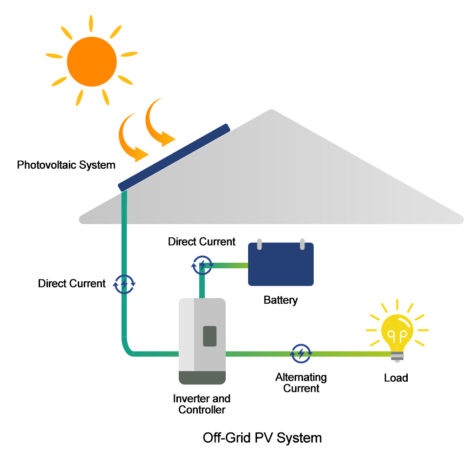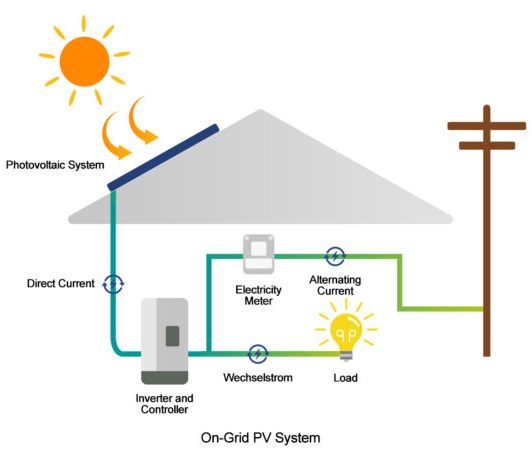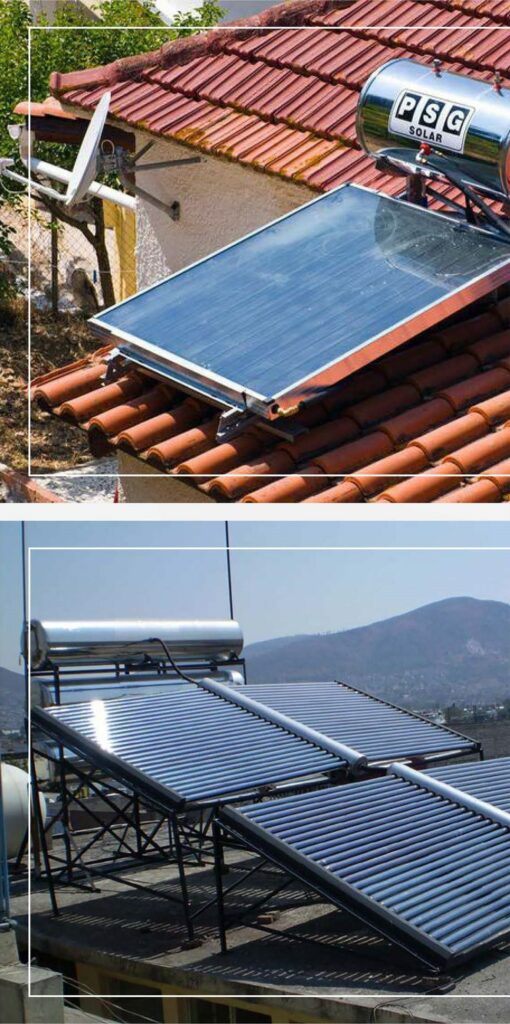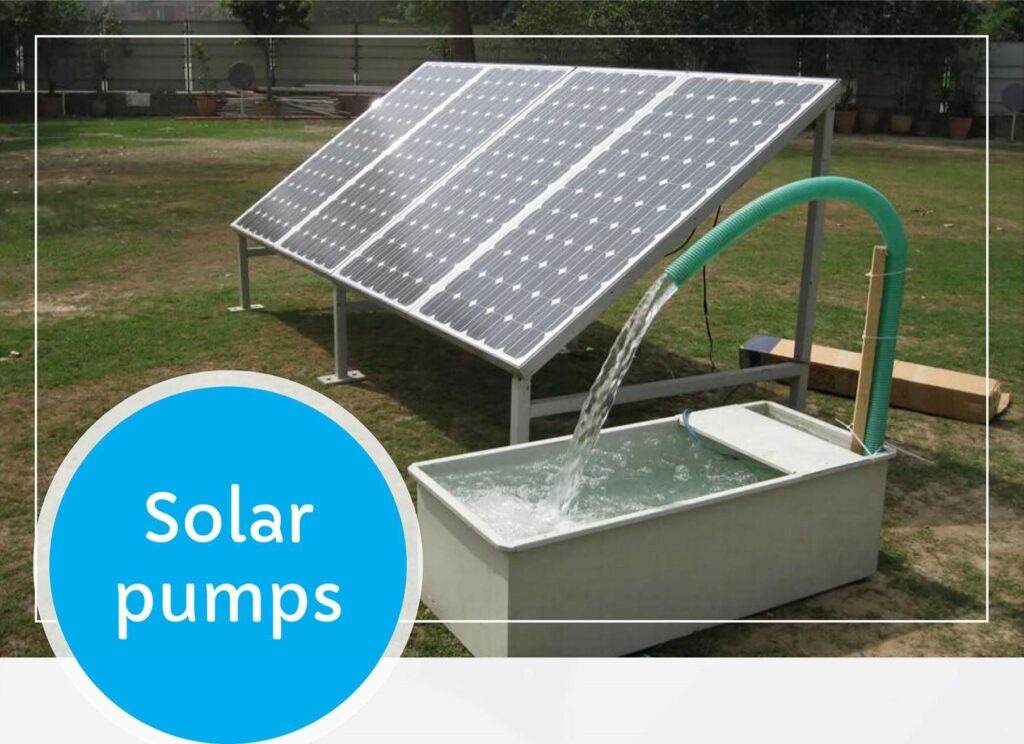Solar energy harnesses the power of the sun to generate electricity and heat. It’s a clean, renewable, and increasingly cost-effective solution for powering homes, businesses, and agricultural operations. With the advancement in technology, solar energy systems are now more efficient and accessible than ever before.

Off-Grid Photovoltaic System
An off-grid PV system operates independently from the public electricity grid, providing complete energy autonomy. This system is ideal for remote locations where grid access is unavailable or unreliable.
Key Features:
- Energy Independence: No reliance on the grid, ensuring power availability in remote areas.
- Battery Storage: Stores excess energy in batteries for use during nighttime or cloudy days.
- Sustainability: Promotes self-sufficiency and reduces carbon footprint.
Ideal For:
- Remote homes and cabins.
- Agricultural operations.
- Backup power for critical systems.
On-Grid Photovoltaic System
An on-grid photovoltaic (PV) system is directly connected to the public electricity grid. This system allows you to generate electricity from solar panels and use it in real-time. Any surplus energy produced can be fed back into the grid, potentially earning you credits or reducing your electricity bill through net metering.
Key Features:
- Grid Integration: Seamless connection to the local utility grid.
- Cost-Efficient: Reduced electricity bills through net metering.
- Reliability: Continuous power supply, even during non-sunny periods, as you can draw power from the grid.
Ideal For:
- Residential homes.
- Commercial buildings.
- Areas with stable grid infrastructure.


Solar Water Heaters
Solar water heaters harness the sun’s energy to heat water for residential, commercial, or industrial use. They are an efficient and eco-friendly alternative to traditional water heating methods. Key Features:- Energy Savings: Reduces electricity or gas bills by using the sun’s energy.
- Eco-Friendly: Decreases greenhouse gas emissions.
- Low Maintenance: Long-lasting systems with minimal upkeep.
- Residential homes.
- Hotels and resorts.
- Industrial processes requiring hot water.
Solar Pumping
Solar pumping systems use solar energy to power water pumps, providing a sustainable solution for irrigation, livestock watering, and potable water supply. These systems are particularly beneficial in areas with limited access to electricity. Key Features:- Cost-Effective: Reduces or eliminates the need for diesel or electricity-powered pumps.
- Scalability: Suitable for small-scale farms to large agricultural operations.
- Environmentally Friendly: Lowers carbon emissions and reduces dependency on fossil fuels.
- Irrigation systems.
- Livestock watering.
- Rural and remote water supply.

